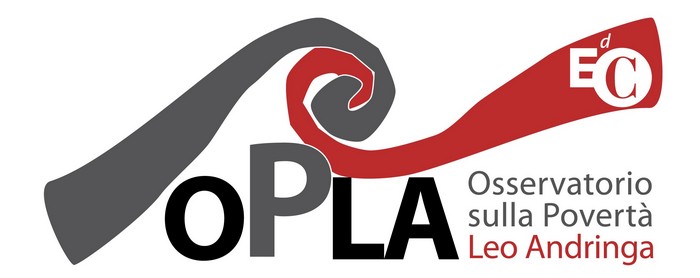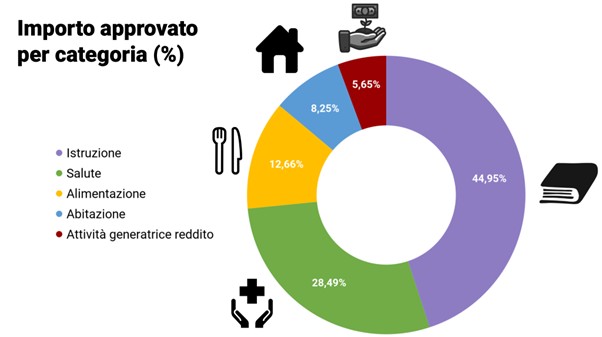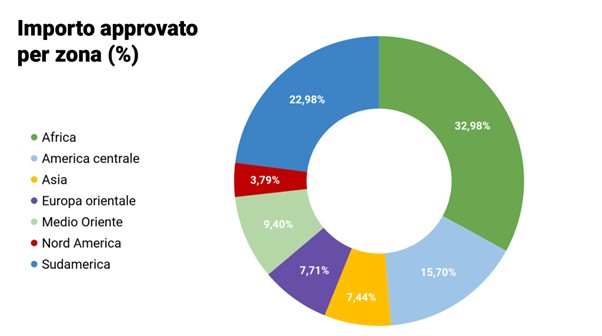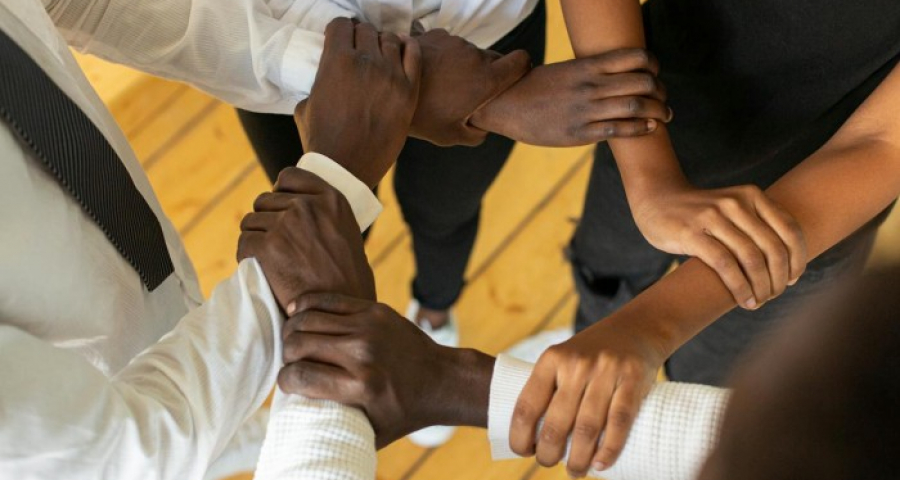From the OPLA Team, here’s a report on the work done in 2023, the first year in which the new criteria for EoC aid management were adopted
by the OPLA team*
In 2023, the world was undoubtedly marked by conflict situations, and the outbreak of the war in Gaza is a dramatic addition to the long list of situations of ‘dehumanisation of humanity’. In such contexts, as studies show1, poverty and inequality are continuously in growth. In such times, more than ever, a very careful look is needed, to be able to seize the opportunities where it is possible to act concretely. The Economy of Communion has tried to do this and, thanks to the many EoC operators scattered throughout the world, it has also made its contribution to the fight against poverty.
 The Leo Andringa Observatory of Poverty took charge of collecting and analysing the requests for help that were received, and during the year tried, together with local operators, to carry out projects to overcome poverty. An international team was formed, which built on the experiences of the EoC and AMU (Action for a United World), to construct a set of criteria for evaluating requests, in order to be more and more effective in our interventions. We have communicated about this over the past months in the articles of this column.
The Leo Andringa Observatory of Poverty took charge of collecting and analysing the requests for help that were received, and during the year tried, together with local operators, to carry out projects to overcome poverty. An international team was formed, which built on the experiences of the EoC and AMU (Action for a United World), to construct a set of criteria for evaluating requests, in order to be more and more effective in our interventions. We have communicated about this over the past months in the articles of this column.
Before going on to analyse the year's figures, it is important to emphasise that the EoC does not intend to become a body that simply disburses funds, but rather it wants each case to be seen as a real project for overcoming poverty. This intention had a direct consequence on the approach we decided to adopt, setting certain conditions to help the operators in the various areas of the world to better accompany the participants. Here is another difference: we do not want to talk about ‘beneficiaries’, but about actual ‘participants’, because each of them can donate!
In 2023, some 300 requests for help were received, which were carefully analysed to understand their actual feasibility: of these, 281 were finalised. More than 200,000 Euros were invested in the projects, generously donated by the many EoC entrepreneurs around the world.
Here is how the funds were used.

The first eye-catching data of the report is that almost 45% of the funds went to education/training. This indicates that, for our operators, education is a trusted and effective route out of poverty, which reflects a long-term vision. One point that must be taken into account, however, is that no applications for scholarships at undergraduate and postgraduate level were approved, as, among the many applications submitted, these were not considered a priority by the evaluation team.
Another aspect to be emphasised is that, in order to give people more opportunities to overcome their condition of poverty, we would have liked to support more income-generating activities. Many of the project proposals submitted, however, necessitated further study and in-depth examination of various elements in order to make these interventions effective in the long term. In-depth studies that required more time: the feasibility of the projects will have to be examined and more effective incentives will be attempted to provide for such initiatives.
Geographically speaking, the distribution of disbursed funds was broadly balanced, reflecting the needs that the team was expecting to arise. It is important to note that among the team's evaluation criteria and objectives there was no geographical balance in the distribution of funds, but this was due to the proportionate number of applications submitted.
Here is the breakdown.
2023 was the first year in which the new criteria were adopted: there were some things that we have understood along the way and every day we learn how best to run the process, both in terms of timing and the relationship with the operators; the aim is to be able to follow the operators better and better and to make the synergy grow more and more.
Building on the experience of 2023, we will start again in January 2024 with the collection of new project requests, trying to be even more effective.
Do you have situations of poverty around you to which you want to dedicate yourself? Contact us at opla@edc-online.org become a local operator yourself. Happy anti-poverty 2024 to all!
Credits foto: Picture by Monstera Production on Pexels:
* The OPLA team: Francesco Tortorella, Germán Jorge, Maria Helena Fonseca Faller, Tainã Santana
1 See studies carried out by Zoe Marcs: Poverty and conflict, october 2016.








